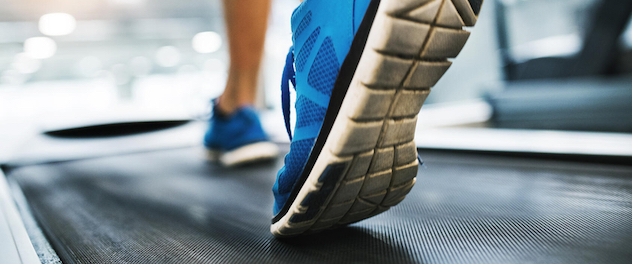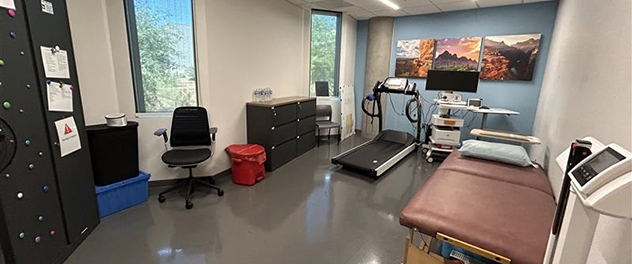-

Interventions to test the health benefits of exercise in cancer survivorship
The research that Dr. Ehlers and her team conduct focuses on helping cancer survivors get more physically active and the benefits that go along with healthy lifestyle behaviors after a cancer diagnosis.
-

Capacity to do multiple types of assessments
The laboratory includes space to perform cognitive testing, physical function assessments and exercise testing. Dr. Ehlers and her team use magnetic resonance imaging to conduct brain imaging at Mayo Clinic's campus in Scottsdale, Arizona.
Overview
Mayo Clinic's Exercise Neuropsychology Lab, led by Diane K. Ehlers, Ph.D., focuses on physical activity and quality of life in older adults and people living with cancer. The lab is in the Health Futures Center, which is a collaboration between Arizona State University and Mayo Clinic.
Our current work aims to understand how physical activity and exercise may reduce cognitive declines in cancer survivors. We use a variety of measures in our research, including wearable sensors to evaluate activity behaviors and heart rate, cardiopulmonary exercise testing, neurocognitive testing, and magnetic resonance imaging (MRI).
Participate in one of our studies
If you are interested in participating in one of our studies, visit these pages:
- BRAIN Study. The Breast Cancer, Reasoning and Activity Intervention (BRAIN) Study compares a six-month aerobic exercise program with a six-month health education program for women with breast cancer. This study is open to women diagnosed with breast cancer.
- IMPACT Study. The Investigating Memory and Physical Activity After Cancer Treatment in Survivors of Adolescent and Young Adult Cancers (IMPACT) Study examines relationships between physical activity, memory and thinking in survivors of adolescent or young adult cancer. This study is open to adults who were diagnosed with cancer when they were between the ages of 15 and 39.